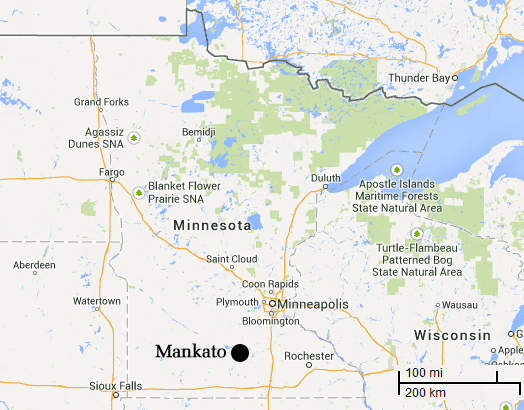The introduction to The Albion Lutheran Cookbook:

If you’ve ever spent a sleepless night flashing through channels, you are most likely familiar with the Minnesotan trope:
Church basement ladies, cranking out hotdish (casserole, to the heathens) for weddings, and scalloped potatoes for funerals. Lilting accents, filled with rustic colloquialisms bourne of the rough hewn farms, grown from the soil despite perma-frost, brought about by sturdy, patient, laboring hands…
And promptly thrown into a wood chipper with an uffda and a lutefisk for FX’s ratings.
Poor Martin Freeman, he really did try his damnedest with that accent.
For all the folksy charm, there is a dire truth to the trope.
Our church ladies in Madelia were called “The Widow Wagon”; to join their ranks was a great honor. When my grandmother died, they had the scalloped potatoes at the ready, ham sandwiches thoroughly slathered in margarine. At every birth, every death, every christening, they were there, the crones, the biddies, the Fates, seemingly unending and all knowing. Paragons of gossip and small town notoriety, they knew what that rascal Paul was up to down the street before he even knew what he was about. What would his poor mother say, if she were still around, oh the shame of it, remember when he was such a sweet young man, and back and back the recollections go, without end to the foundations of the church itself.
My relationship with food started, for me, with a cookbook.
My mother is a nutritionist, has research on research on health and good food practice.
But the cookbook we always turned to had nothing to do with health: coated in a thin veneer of foods past, cardstock gone yellow with the patina of time, its pages were riddled with calls for Olio or straight up lard, skip the pretense.
The Albion Lutheran Centennial Cookbook.
This is where magic lived: The perfect pumpkin bar, rhubarb cake, krumkake, chocolate revel-
Every taste of comfort came from that book, perfectly curated by the hands of a century’s worth of church basement ladies, crafting dishes to soothe and celebrate, and never given their own names.
“Frutsuppe, from Mrs. Jonathan Alvings”
“Lefse with Riced Potatoes, from Mrs. Jeremiah Smith”
They were ultimately the backbone of the community, keeping the world together on the edge of the prairie, raised up from sod houses and whitewashed walls in the dead of winter, but they were erased between the pages, rubbed out to their base ingredients, the secret recipes they coveted from their neighbors, took pride in at the fairs and socials.
All in my little hands, the hands of my mother, her mother before.
In my family, they started from the seeds of immigrants in Albion. And there, generation after generation, the women have been planted again at the end of their lives.
There’s something to that: the town of Albion, out at the end of the world, slowly fading away to nothing but the church grounds and the old general store, surrounded by the graves of the women that made the town what it was.
And that cookbook.
Women in reverse, feeding and fed on.
I come from these women.
Monica, Doris, Kelly.
I digested myself, fermented, formed around the culture they fed me, or couldn’t quite feed me.
And I had to feed on myself like so many of those basement women, eating inward and shrinking.
Monica, my mother’s mother, loud and gregarious.
Doris, dad’s mom, bitter and shriveled.
My grandmothers are studies in inverse: one shrank and withered, her organs literally removed as all that hate curdled as a cancer in her gut, the other making her whole world her trailer and like a fish, she grew to fit the space, double wide but nothing more beyond those doors; the kids in the neighborhood thought she was a witch.
My mother is a combination of the two, and an erased page in the Albion book, narrow pages and angry angry angry that this was the life put down for her by the roots of a town razed to the ground.
These were the women with calloused hands, practiced smiles, permafrost coating that put me in the earth to grow or shrink.
Eat your vegetables to grow big and strong.
Are you sure you want to eat that much?
Are you sure?
You’re too big.
You’re too small.
A political battleground body, a veritable Goldilocks of never quite enough.
In the shadow of these women, known and nameless,
I shrank.